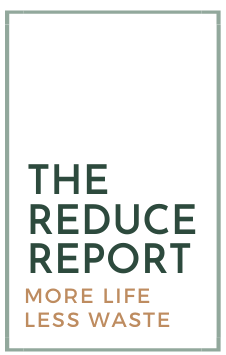The Big Refillable/Zero-Waste Deodorant Roundup Review 2020 | Myro vs Wild vs Public Goods vs byHumankind vs Hammond Herbs
The Top Line:
byHumankind loses points for a (very light but) slightly weird smell and residue. Wild also gets points off for residue (come on guys). Myro and Public Goods (not zero waste) win the scent and texture game (silky!) but not the price (Myro) or zero-waste (Public Goods) game. We liked Native a lot, but it is super pricey.
Since all of the refillable or zero-waste options are already crazy expensive compared to drugstore brands, if we had to pick one, we would pick Hammond Herbs given its decent texture, no residue, light scent, and zero-waste.
[Updated 12 Dec 2020 to add Native Deodorant]
The Breakdown:
What are the Brands? We reviewed Myro [natural, refillable], Wild [natural, refillable], Hammond Herbs [natural, zero-waste], Public Goods [natural], and byHumankind [natural, refillable].
What’s Your Impact? It depends on which brand you go with, but at the very least, all of the deodorants are just that—deodorants. Some have the ability to absorb a bit of moisture, but you won’t find aluminum here. Most of the ingredients are natural, and byHumankind’s claim, ‘safe enough to eat.’ !
Most of the options we reviewed are also refillable or zero waste, so not only are the ingredients better for your body, the reduction on the reliance of plastics is progress.
Why go Natural and/or Refillable and or Zero-Waste? There have been some linkages of aluminum to medical issues. When you go natural deodorant, whatever risk exists is greatly reduced plus we think fewer chemicals are probably better for the environment.
Going the zero waste option of Hammond Herbs removes the full 2 - 12 deodorant sticks from the production/garbage cycle!
Between Myro, Wild, and byHumankind there is range of plastic reduction, depending on the material of the refill components. Wild’s refills are paper while Myro’s is lightweight plastic (50% reduction) and byHumankind is a blend (90% reduction).
The Comparison & Experience:
Context: We have been weening ourselves away from potentially toxic chemicals for the last two years. In addition to wanting to be more natural, we saw this as a way to also reduce plastic consumption.
Over the time of our reviews, we have also gotten to know some of the deodorants more intimately.
Scent: None of the deodorant options are particularly strong or chemical smelling, given the natural ingredients. Our favorites are probably Hammond Herbs (Bergamot & Lime), Public Goods (light citrus and spice), Native (we would have picked the citrus/musk one if it was available, but we didn’t mind the coconut vanilla scent), and Myro (again, we didn’t love cucumber scent, but we could tell we’d like the others based on the quality).
As far as odor, we’ve used them all during workouts and think each of them neutralize the scent fairly well.
How Long Do They Last: So far, even though it’s too early to tell, Public Goods is giving everyone the other brands a run for their money: all told, it probably lasted 4 months! byHumankind is a bit lagging. Close behind is Native, which we think will last about 3 months. We almost used byHumankind up in one month!
Green Factor: Both Native and Hammond Herbs wins here: 100% paper packaging. Wild and byHumankind are a close second and third with their paper and 90% reduction in plastic packaging, respectively. Public Goods gets pointed deducted for zero effort in reducing plastic — though the plastic is sourced from sugar rather than petroleum.
Texture: Public Goods and Myro were our favorite given the gel consistency. Native came in third since it feels like a more lovely, solid cream. Hammond Herbs is like Native, with a touch of graininess, and it is growing on us, especially given that it doesn’t leave any residue. Speaking of…
White marks? Wild and byHumankind are awful at this. White marks everywhere. Public Goods, Hammond Herbs, and Myro leave no residue.
Other: Of the refillable caliber, Myro may have been the easiest to use. Wild (designed by Morrama) looks cool, but the paper refills need a little finagling. byHumankind didn’t yet give us a chance to fiddle with the refill since it arrived pre-filled. Lastly, when you use Native to the top, because the container is tall, you are going to (possibly) need a makeup brush or toothbrush to push it up (we have short fingers that match our short stature).
Cost: Public Goods wins here. There’s no contest. Of the more earth friendly refillable or zero waste options, Wild is the next best over time.
Read More — Our In-Depth Reviews of Natural, Refillable, Zero-Waste Deodorants:
![Myro Chill Wave [natural, refillable]](https://images.squarespace-cdn.com/content/v1/5e2608e21195f14156e7cece/1607826845824-DY9A2YPLX5P1EDX9LROV/Myro+Deodorant+%284%29.jpg)
![Native Coconut & Vanilla [natural, zero-waste]](https://images.squarespace-cdn.com/content/v1/5e2608e21195f14156e7cece/1607826983835-VCQNLJIRWEQMCEEYH713/Native+Deodorant+%285%29.jpg)
![Hammond Herbs Bergamot Lime [natural, zero-waste]](https://images.squarespace-cdn.com/content/v1/5e2608e21195f14156e7cece/1607827015388-YS7IPW36DHB7SF6B8X76/pitstopbergamotlime+-+Copy.jpg)
![Wild Rose Blush [natural, refillable]](https://images.squarespace-cdn.com/content/v1/5e2608e21195f14156e7cece/1607827111596-NH9ZYIW7P2RFVOAT4FAM/Wild+Deodorant+%284%29.jpg)
![Public Goods Citrus & Spice [natural]](https://images.squarespace-cdn.com/content/v1/5e2608e21195f14156e7cece/1607827183479-76OKCF4T3P8NIWJY9S9J/Public+Goods+Deodorant+Home+Open.jpg)
![byHumankind Eucalyptus [natural, refillable]](https://images.squarespace-cdn.com/content/v1/5e2608e21195f14156e7cece/1607827217841-O95AXFTCWN80QDIRDFWW/DO-Container-GY-Desktop.jpg)
Myro Deodorant Chill Wave Review [natural, refillable]
Wild Rose Blush Deodorant Review [natural, refillable]
Hammond Herbs Bergamot Lime Deodorant Review [natural, zero-waste, plastic-free]
Public Goods Citrus & Spice Deodorant Review [natural]
byHumankind Eucalyptus Deodorant Review [natural, refillable]
Native Coconut & Vanilla Deodorant Review [natural, zero-waste, plastic-free]
Our Recommendation:
None of the options were ideal when it comes to texture, price, scent, or green-ness.
If you are optimizing for greenness: Hammond Herbs or Native, by far. They are zero waste and both deodorant sticks do great job. The scent on Hammond Herbs is also light and wonderful.
If you are optimizing for cheapest: Public Goods. No Contest. Though - you would need a Public Goods membership, which we evaluated here. Or stock up during your trial period. Note: limited change to the environment.
If we were forced to pick one: Ugh. Given how much plastic we would probably generate with standard sticks per year (we go through a few per year), probably Hammond Herbs! All of the natural deodorants are already so expensive anyway, that both Native (subscription) and Hammond Herbs have a leg up when it comes to texture and scent (+ no white marks!), along with super kudos for a zero-waste, paper tube.
We're on a mission to reduce our personal carbon footprint with small, hopefully easy, changes in our home to fight against climate change. This means we're looking for products that may be all natural, ideally zero waste, reusable or compostable -- while still being affordable!









